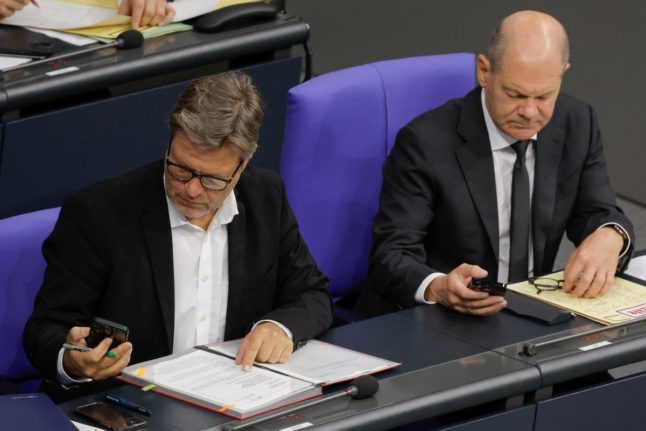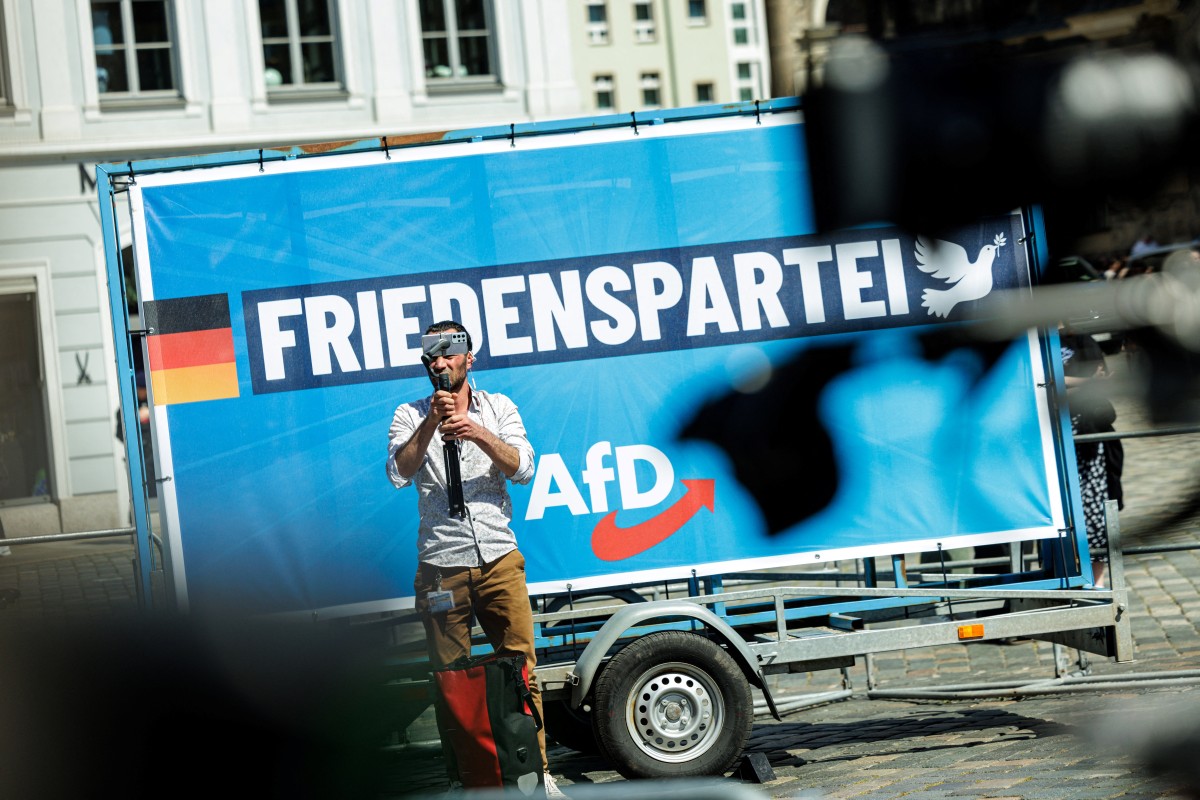Output is expected to expand 0.3 percent this year, the economy ministry said, up from a prediction of 0.2 percent in February.
The slightly rosier picture comes after improvements in key indicators — from factory output to business activity — boosted hopes a recovery may be getting under way.
The German economy shrank slightly last year, hit by soaring inflation, a manufacturing slowdown and weakness in trading partners, and has acted as a major drag on the 20-nation eurozone.
But releasing its latest projections, the economy ministry said in a statement there were growing indications of a “turning point”.
“Signs of an economic upturn have increased significantly, especially in recent weeks,” Economy Minister Robert Habeck said at a press conference.
The ministry also cut its forecast for inflation this year to 2.4 percent, from a previous prediction of 2.8 percent, and sees the figure falling below two percent next year.
READ ALSO: Can Germany revive its struggling economy?
“The fall in inflation will lead to consumer demand — people have more money in their wallets again, and will spend this money,” said Habeck.
“So purchasing power is increasing, real wages are rising and this will contribute to a domestic economic recovery.”
Energy prices — which surged after Russia’s 2022 invasion of Ukraine — had also fallen and supply chain woes had eased, he added.
Several months ago there had been expectations of a strong rebound in 2024, with forecasts of growth above one percent, but these were dialled back at the start of the year as the economy continued to languish.
‘Germany has fallen behind’
But improving signs have fuelled hopes the lumbering economy — while not about to break into a sprint — may at least be getting back on its feet.
On Wednesday a closely-watched survey from the Ifo institute showed business sentiment rising for a third consecutive month in April, and more strongly than expected.
A key purchasing managers’ index survey this week showed that business activity in Germany had picked up.
And last week the central bank, the Bundesbank, forecast the economy would expand slightly in the first quarter, dodging a recession, after earlier predicting a contraction.

Despite the economy’s improving prospects, growth of 0.3 percent is still slower than other developed economies and below past rates, and officials fret it is unlikely to pick up fast in the years ahead.
Habeck has repeatedly stressed solutions are needed for deep-rooted problems facing Germany, from an ageing population to labour shortages and a transition towards greener industries that is moving too slowly.
“Germany has fallen behind other countries in terms of competitiveness,” he said. “We still have a lot to do — we have to roll up our sleeves.”
READ ALSO: Which German companies are planning to cut jobs?
Already facing turbulence from pandemic-related supply chain woes, the German economy’s problems deepened dramatically when Russia invaded Ukraine and slashed supplies of gas, hitting the country’s crucial manufacturers hard.
While the energy shock has faded, continued weakness in trading partners such as China, widespread strikes in recent months and higher eurozone interest rates have all prolonged the pain.
The European Central Bank has signalled it could start cutting borrowing costs in June, which would boost the eurozone.
But Habeck stressed that care was still needed as, despite the expectations of imminent easing, “tight monetary policy has not yet been lifted.”
In addition, disagreements in Chancellor Olaf Scholz’s three-party ruling coalition are hindering efforts to reignite growth, critics say.
This week the pro-business FDP party, a coalition partner, faced an angry backlash from Scholz’s SPD when it presented a 12-point plan for an “economic turnaround”, including deep cuts to state benefits.
Christian Lindner, the fiscally hawkish FDP finance minister, welcomed signs of “stabilisation” in the economic forecasts but stressed that projected medium-term growth was “too low to sustainably finance our state”.
“There are no arguments for postponing the economic turnaround,” he added.




 Please whitelist us to continue reading.
Please whitelist us to continue reading.
Member comments